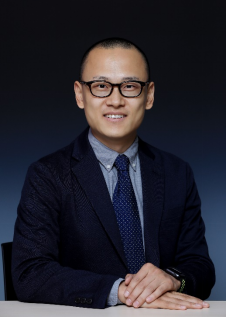
Li Tiefu Associate Professor
Li Tiefu, Ph.D., associate professor, received his bachelor's and doctor's degrees from the Department of Electronic Engineering and the Institute of Microelectronics, Tsinghua University in 2003 and 2009, respectively. He has been working at Tsinghua University since 2009. He is currently an associate professor at the School of Integrated Circuits, assistant dean and director of the Talent Development Office.
His research interests are quantum computers based on superconducting integrated circuits, quantum interface devices, and classical-quantum hybrid optimization algorithms. He has published more than 60 papers in journals and international conferences, and as the project leader or subject leader, he has undertaken more than ten scientific research projects including National Key R&D Plan and key projects of the Natural Science Foundation of China.
He is currently a director of the first council of Tsinghua Integrated Circuit Professional Committee, a director of Beijing e-town Integrated Circuit Industry Development Foundation, and a member of the Chinese Materials Research Society Branch.
Introduction to research direction:
1. Quantum computer based on superconducting integrated circuits: use micro-nano processing technology to manufacture superconducting quantum computing chips, and conduct research on quantum information and quantum optics physical problems and modulation technologies, with the goal of realizing large-scale practical quantum computers.
2. Quantum interface devices: use opto-mechanical devices to develop quantum interface devices that can efficiently convert quantum information between the microwave frequency of quantum computing and the optical frequency of quantum communication. Develop cryo-CMOS quantum control chips for quantum computers.
3. Classical-quantum hybrid optimization algorithm: use the parallel advantages of quantum computing and combine classical algorithms to develop hybrid optimization algorithms.
[1] Coherent memory for microwave photons based on long-lived mechanical excitations, Y. Liu, Q. Liu, H. Sun, M. Chen, S. P. Wang, and Tiefu. Li*, npj Quantum Information, 9, 80 (2023).
[2] Probing the symmetry breaking of a light--matter system by an ancillary qubit, S. P. Wang, A. Ridolfo, Tiefu. Li*, S. Savasta*, F. Nori, Y. Nakamura, and J. Q. You*, Nature Communications, 14, 4397 (2023).
[3] A Polar-Modulation-Based Cryogenic Qubit State Controller in 28nm Bulk CMOS, Y. S. Guo, Y. Y. Li, W. Q. Huang, S. Y. Tan, Q. C. Liu, Tiefu Li, N. Deng, Z. H. Wang, Y. J. Zheng, and H. J. Jiang, Digest of 2023 IEEE International Solid-State Circuits Conference (ISSCC), Feb. 2023.
[4] Hybridized Frequency Combs in Multimode Cavity Electromechanical System, S. Wu, Y. Liu*, Q. Liu, S. P. Wang, Z. Chen, and Tiefu. Li*, Phys. Rev. Lett. 128, 153901 (2022).
[5] Optomechanical Anti-Lasing with Infinite Group Delay at a Phase Singularity, Y. Liu, Q. Liu, S. Wang, Z. Chen, M. A. Sillanpää*, and Tiefu. Li*, Phys. Rev. Lett. 127, 273603 (2021).
[6] Exceptional Point and Cross-Relaxation Effect in a Hybrid Quantum System, G. Q. Zhang, Z. Chen, D. Xu, N. Shammah, M. Liao, Tiefu. Li*, L. Tong, S. Y. Zhu, F. Nori, and J. Q. You*, PRX Quantum 2, 020307 (2021).
[7] Photon-Dressed Bloch-Siegert Shift in an Ultrastrongly Coupled Circuit Quantum Electrodynamical System, S. P. Wang, G. Q. Zhang, Y. M. Wang, Z. Chen, Tiefu Li*, J. S. Tsai, S. Y. Zhu, and J. Q. You, Phys. Rev. Appl. 13, 054063 (2020)
[8] Bistability of cavity Magnon Polaritons, Y. P. Wang, G. Q. Zhang, D. K. Zhang, Tiefu Li*, C. M. Hu, and J. Q. You*, Phys. Rev. Lett. 120, 057202 (2018).
[9] Observation of the exceptional point in cavity magnon-polaritons, D. K. Zhang, X. Q. Luo, Y. P. Wang, Tiefu Li*, J. Q. You*, Nature Communications 8, 1368 (2017).
[10] Cavity quantum electrodynamics with ferromagnetic magnons in a small yttrium-iron-garnet sphere, D. K. Zhang, X. M. Wang, Tiefu Li*, X. Q. Luo, W. D. Wu, Franco Nori and J. Q. You*, npj Quantum Information 1, 15014 (2015).
